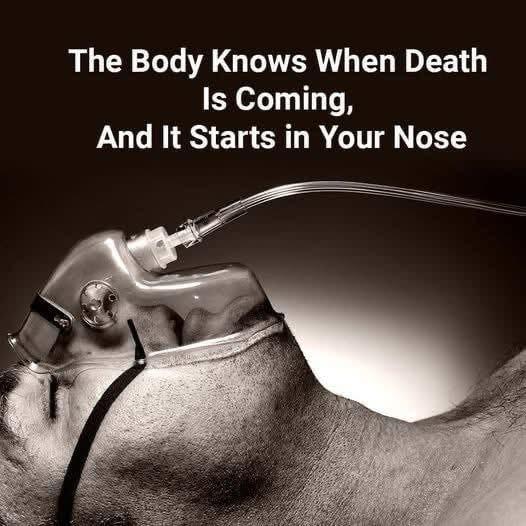11 Signs You Are About to Die That You Can Notice Yourself
The topic of death, though often avoided, is a natural part of life. For individuals approaching the end of their lives, whether due to age, illness, or other circumstances, the body often provides subtle and not-so-subtle signs. Understanding these signs can help individuals prepare emotionally, spiritually, and practically for the inevitable.
Here are 11 signs that may indicate you or a loved one could be nearing the end of life:
1. Severe Fatigue and Weakness
A noticeable and persistent lack of energy is one of the most common signs. As the body begins to shut down, energy reserves dwindle, leaving individuals feeling exhausted even after minimal activity. Simple tasks like sitting up or eating can become overwhelming.
2. Decreased Appetite and Thirst
A declining interest in food and fluids is another indication. The body’s metabolism slows down, and the need for nourishment decreases. This natural process can be distressing for loved ones, but forcing food or drink is unnecessary and may cause discomfort.
3. Changes in Breathing Patterns
Breathing may become irregular, a phenomenon known as Cheyne-Stokes breathing. This pattern involves periods of rapid breaths followed by pauses. Shallow, labored breathing and occasional gurgling sounds, often called a “death rattle,” may also occur as the body struggles to regulate oxygen intake.
4. Coolness in Extremities
As circulation slows, the body prioritizes blood flow to vital organs, leaving hands, feet, and limbs cold to the touch. The skin may appear pale, mottled, or bluish, particularly on the fingers and toes.
5. Disorientation and Confusion
Cognitive changes, such as confusion about time, place, or people, are common. These may result from reduced oxygen supply to the brain or the effects of medications. Individuals might appear to “see” people or places that others cannot, which can be a natural part of the dying process.
6. Withdrawal and Social Detachment
A person nearing death often withdraws from social interaction, preferring solitude or quiet companionship. This detachment is a natural way for individuals to conserve energy and focus inward as they approach the end of life.
7. Persistent Pain or Discomfort
Chronic or increasing pain, particularly in those with terminal illnesses, may indicate the body’s decline. Pain management through palliative care can significantly improve comfort during this stage.
8. Changes in Urine and Bowel Output
A reduction in urine output, darker urine, or infrequent bowel movements are signs that the kidneys and digestive system are slowing down. Loss of bladder or bowel control may also occur as the muscles weaken.
9. Skin Changes
In addition to cool extremities, skin may become thin, dry, or fragile. Bruising may appear more easily due to reduced blood flow and decreased fat beneath the skin.
10. Restlessness or Agitation
Some individuals experience heightened agitation, restlessness, or repetitive motions, such as pulling at sheets or clothing. This could be a result of physical discomfort, unresolved emotional matters, or changes in brain chemistry.
11. A Sense of Peace or Acceptance
Many people report a shift in emotional or spiritual outlook near the end of life. They may express a sense of calm, acceptance, or readiness to let go. This can bring comfort to both the individual and their loved ones.
Understanding and Supporting the Process
Recognizing these signs can help individuals and their families prepare for the transition from life to death. Providing comfort, understanding, and support is essential. Hospice or palliative care services can offer valuable guidance and alleviate physical and emotional suffering during this time.
While it’s important to recognize these signs, remember that every person’s experience is unique. Some may show all or none of these signs, and the timing can vary significantly. Regardless, compassion and care should remain at the forefront as we navigate life’s final chapter.
